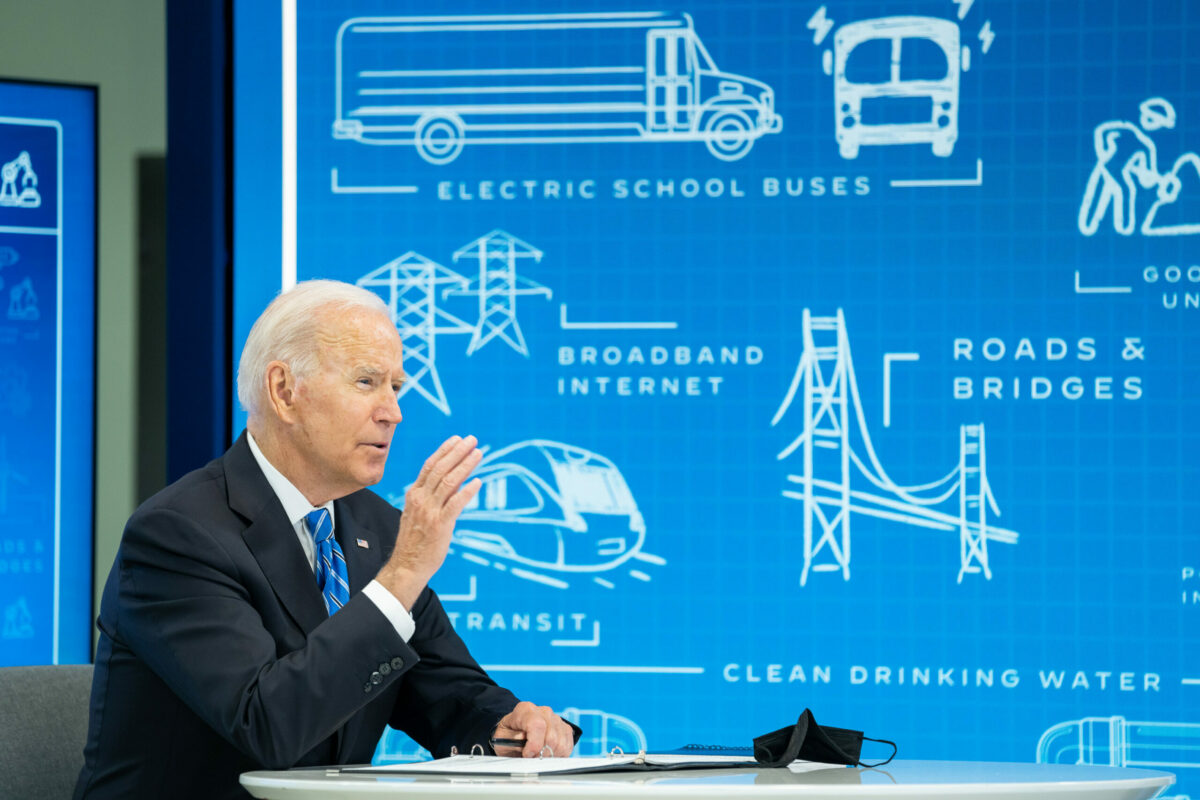With an eye toward preventing banking industry troubles that would require taxpayer rescues and bailouts, the Biden administration is advocating for undoing rule changes that were enacted by the Trump administration and weakened industry regulations.
“The President believes that the weakening of common-sense bank safeguards and supervision during the Trump Administration for large regional banks should be reversed in order to strengthen the banking system and protect American jobs and small businesses,” the White House said in a statement released March 30.
Several bank failures have made national headlines in recent months.
On May 1, federal regulators seized the assets of First Republic Bank and sold most of its holdings to JPMorgan Chase. The bank was on shaky financial ground following the failures of Silicon Valley Bank and Signature Bank in March, which resulted in depositors pulling out their funds from smaller banks as concerns grew about the banking sector.
In these instances, the funds to manage the fallout from bank failures have come from other banks and not directly from taxpayers, but wider problems in the banking system could lead to unpopular public bailouts like those following the Great Recession in 2008.
In recent weeks, the Biden administration has pointed to the “Economic Growth, Regulatory Relief, and Consumer Protection Act,” signed into law by former President Donald Trump in 2018, as a contributor to financial instability, since it allows banks to evade scrutiny from regulators and financial investors they would have previously faced.
The law passed Congress when Republicans were in the majority. While a few Democrats voted for the bill, most opposed the legislation, including both figures representing the center-left, like then-House Minority Leader Nancy Pelosi, and progressives like Sens. Bernie Sanders (I-VT) and Elizabeth Warren (D-MA).
The legislation weakened regulations applying to medium-sized banks that had been put in place by the Dodd-Frank Wall Street Reform and Consumer Protection Act, signed into law by then-President Barack Obama in 2010.
Dodd-Frank set up procedures for banks to be dismantled or liquidated in an orderly fashion to prevent taxpayers from needing to prop up institutions that were “too big to fail.” It also imposed limits on the types of products that banks can invest in (mortgage investing contributed to the recession), and it created a consumer protection agency, the Consumer Financial Protection Bureau.
A study published by the Yale School of Management on March 27 found that weakened standards introduced by the 2018 law contributed to the failures at Silicon Valley Bank. Under the old rules, the bank would have triggered more scrutiny about its inability to meet its financial obligations before the situation had reached a moment of crisis. But under the new system, it evaded further investigation.
Biden has called on federal banking agencies to reinstate Obama-era rules requiring banks with $100 billion to $250 billion in assets to have enough money on hand to deal with an outflow of cash during a period of stress; initiate annual stress tests to ensure banks have sufficient capital to manage future risks; and require banks to have a “living will” describing how business can be wound down when necessary without placing additional stresses on the banking system.
“It is important to put in place common-sense safeguards to reverse the Trump Administration’s harmful weakening of bank safeguards and supervision and help ensure that community and regional banks remain resilient and continue supporting small businesses and jobs,” the White House said.
Biden has also urged Congress to pass laws that would better hold banking executives accountable for mismanagement and taking excessive risks.
In a March 17 statement, the White House said that Biden was calling on Congress to pass legislation that would allow the Federal Deposit Insurance Corporation to claw back earnings taken by executives right before their banks failed.
He also called for granting FDIC the power to bar banking executives from holding jobs within the industry while their previous banks were in receivership and for giving the agency the ability to issue fines to the leaders of failed banks.
